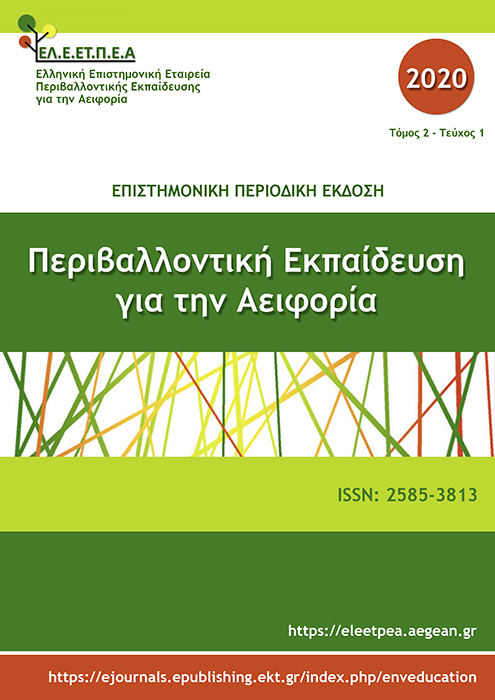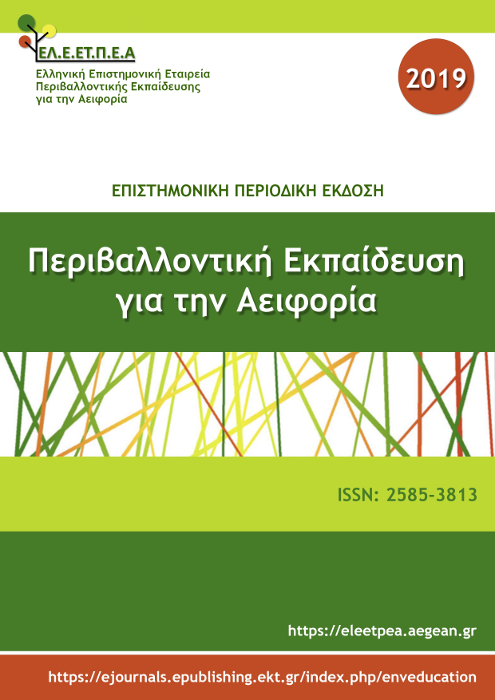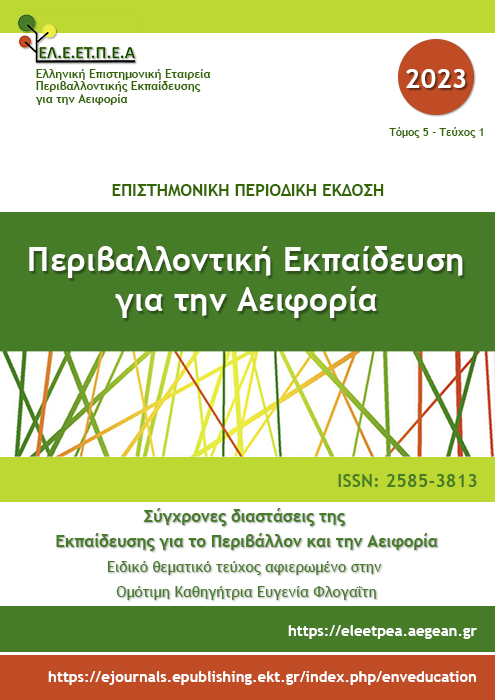Διερευνώντας την προοπτική της αειφορίας στο σύγχρονο πανεπιστήμιο
Abstract
Η παρούσα ερευνητική εργασία επιδίωξε να διερευνήσει τις δυνατότητες ανάπτυξης ενός πανεπιστημιακού τμήματος ως εκπαιδευτικού οργανισμού που κινείται στην κατεύθυνση της Εκπαίδευσης για την Αειφόρο Ανάπτυξη (ΕΑΑ). Η έρευνα εφαρμόστηκε στο Τμήμα ... του Πανεπιστημίου ... Η διεξαγωγή της έρευνας συντονίστηκε από πέντε φοιτητικές ομάδες που μελετούσαν συγκεκριμένες προβληματικές καταστάσεις εντός του πανεπιστημιακού κτιρίου και προωθούσαν λύσεις στην κατεύθυνση της EAA. Η Έρευνα Δράσης ήταν η ερευνητική μέθοδος που επιλέχθηκε για την οργάνωση της ερευνητικής διαδικασίας. Η ανάλυση των ερευνητικών δεδομένων έδειξε ότι οι παγιωμένες αντιλήψεις, η γραφειοκρατική κουλτούρα και οι πολύπλοκες οργανωτικές και διοικητικές δομές λειτουργούσαν ανασταλτικά στην προσπάθεια αναμόρφωσης του πανεπιστημίου.
Article Details
- Come citare
-
Κάτσενου Χ., & Φλογαΐτη Ε. (2020). Διερευνώντας την προοπτική της αειφορίας στο σύγχρονο πανεπιστήμιο. Περιβαλλοντική Εκπαίδευση για την Αειφορία, 2(1), 16–28. https://doi.org/10.12681/ees.20773
- Sezione
- Articles

Questo lavoro è fornito con la licenza Creative Commons Attribuzione - Non commerciale - Condividi allo stesso modo 4.0 Internazionale.
Οι συγγραφείς διατηρούν τα πνευματικά δικαιώματα και παρέχουν στο περιοδικό το δικαίωμα της πρώτης δημοσίευσης μαζί με την αδειοδότηση της εργασίας με CC-BY-NC-SA, που επιτρέπει σε άλλους να μοιράζονται αυτή την εργασία με αναγνώριση του συγγραφικού δικαιώματος και την αρχική δημοσίευση σε αυτό το περιοδικό.




